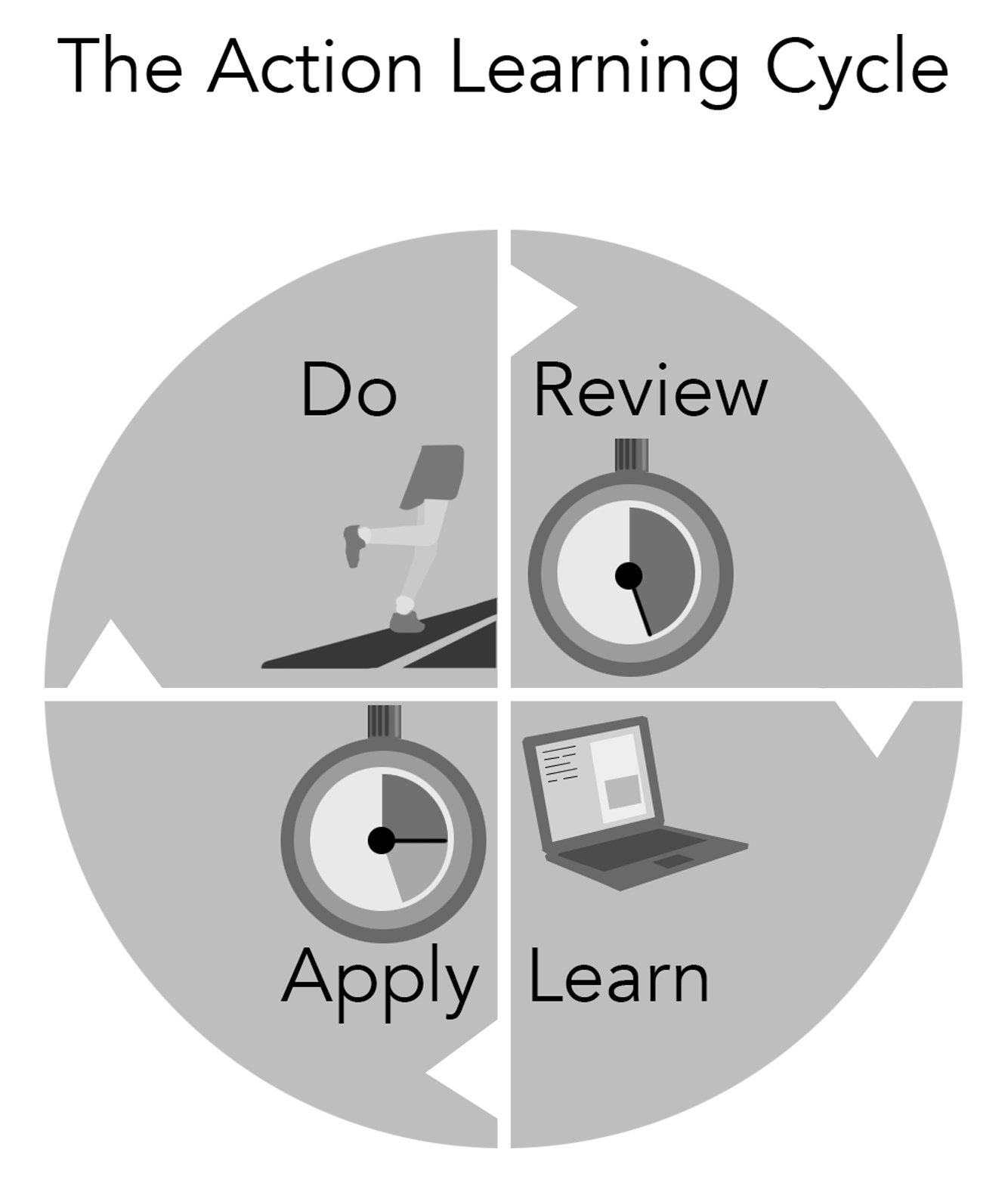Learning never stops. We must keep reinforcing our good habits through practice and performance to give ourselves the best possible chance of reaching your win and all your future wins. Whether you are a budding athlete, an entrepreneur, or a corporate executive, learning to learn is the skillset that will transform your win from a one-time thing to a lifetime of fulfilment.
Let’s say your win involved winning a big pitch on behalf of your company, but the effort of getting there left you feeling exhausted and distant from your loved ones – was that really the best outcome you could have attained? When we commit to our learning, we must be prepared to look at everything that went right, and everything that went wrong. We should be able to build on the success of our initial win, while recognising the ways in which that win could have been more effectively achieved.
Geri enlisted our help to reach a big milestone at work and was rewarded with a promotion and a team of her own. Initially, the team had a great track record of success, pitching the company’s services to external vendors and bringing in a lot of new clients. Then they lost a major account, and then another one, and then another one.
How to turn a loss into a win
Geri called a meeting to get to the bottom of what was going wrong. The meeting involved finger-pointing and blame. They came to no clear actionable outcomes on how to improve the situation, there was a total lack of confidence in the team so Geri returned to Track Record for guidance.
We went through each and every pitch with her – good and bad, and we asked her the same questions about each one:
- What was the intention?
- Was it achieved?
- What happened?
- What would you do differently next time around?
- What would you replicate?
- And finally, what habits do you currently have in place to ensure active learning?
The team realised pretty quickly that they their win was wrong. In order to maintain the reputation of the team, they were exclusively focused on signing the deal. This mean they were very good at doing what ever it took to get them to sign on the dotted line. However what they also realised was that those promises they were making were just not achievable and so the company’s reputation had become one of not following through on their promises.
While Geri and her team had the skills to close big deals, they were not following through on their promises from a client management point of view. The solution was to switch the win to client satisfaction, not just signing deals.
Reflecting on success and failure
Geri’s team did not spend enough time reflecting on asking how they could improve their full performance. We can all benefit from a willingness to learn and to grow. This means building an ability to see our flaws as well as our talents – to see where we need to put in a bit more work, and to celebrate the opportunity to keep on learning.
When we know where we need to improve, we can place our focus there and make sure we don’t make the same mistakes again. Likewise, by reflecting on our successes, we can replicate them in other areas of our lives. When we know what we do well and how to maximise the benefits, our confidence will be well placed and build.
The action learning cycle shows us how to make learning a part of every win, and every loss. No matter what we are trying to achieve, we have to do, review, learn and apply. Then, we have to do and review all over again!

How to reflect on a success
When we give ourselves time to reflect and review, our successes and failures become clearer. On every journey to every win there will be things that propel us to our win and things that pull us back. In order to learn, we need to look at everything - the good and the bad – and apply the same reasoning to both.
Geri worked hard to achieve her initial win of getting a promotion. Her team worked hard to win their first major pitch. But their inability to learn to learn meant that they were jeopardising all of that hard work by failing to take the time to properly reflect.
Your journey is not over when you arrive at your end win. That achievement is proof of your innate ability and your commitment to success. Once you are able to reflect and be confident you know why you were successful, you will be well on your way towards reaching your full potential, and a lifetime of ever-increasing wins.
To learn more about how to control your confidence and keep on achieving wins, pick up our book from WhatDoesItTakeToWin.com.
